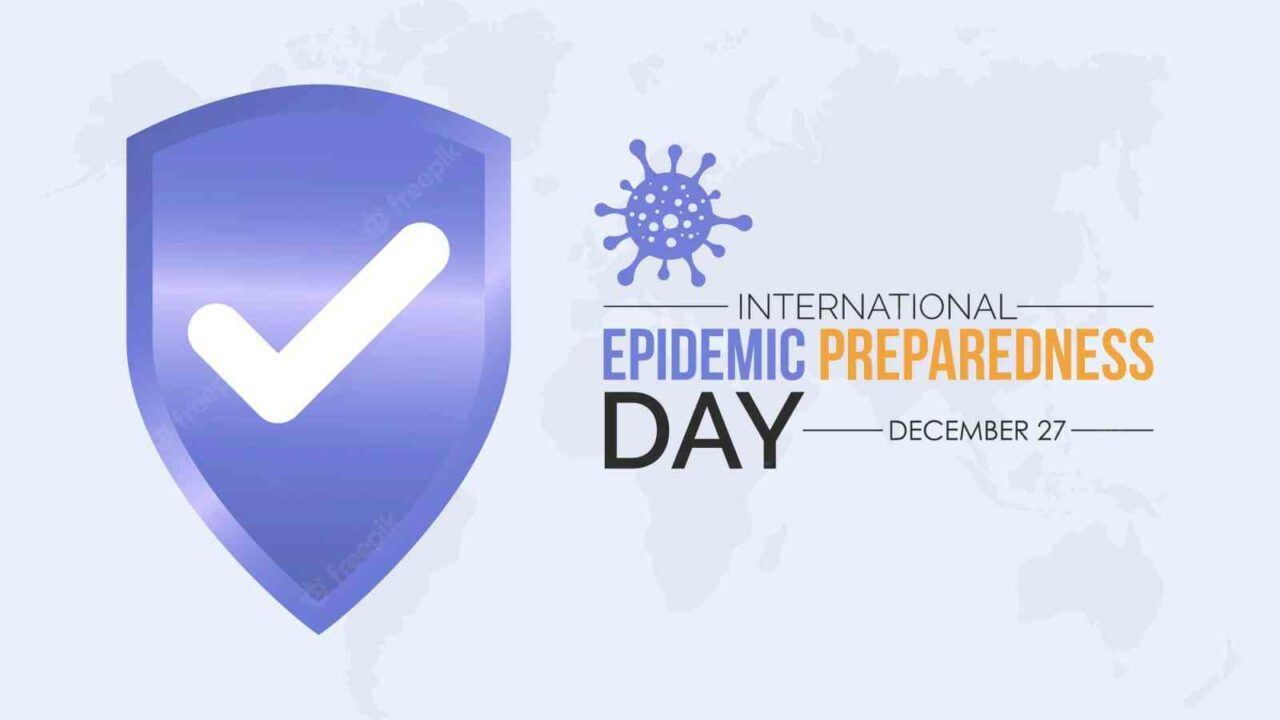On December 27, 2022, the world will celebrate the second annual International Day of Epidemic Preparedness (IDEP). This day was established to create global awareness about pandemics, epidemics and other public health threats that affect us all. As we look ahead to this special day, it’s worth reflecting on what we can do as a global community to prepare for future epidemics. In this blog post, we will explore the importance of IDEP and provide some tips on how to be better prepared for epidemics in our lives.
What is the International Day of Epidemic Preparedness?
The International Day of Epidemic Preparedness (IDEP) is observed annually on December 27. The day was established by the World Health Organization (WHO) in order to promote awareness and action to prevent, prepare for, and respond to epidemics.
Epidemics can have a devastating impact on communities and economies, as we have seen with the recent Ebola outbreak in West Africa. IDEP provides an opportunity for individuals, organizations, and governments to pledge their commitment to epidemic preparedness and join forces to strengthen health systems against future outbreaks.
There are many steps that can be taken to prepare for an epidemic, including building strong health systems, stockpiling supplies, training healthcare workers, and creating early warning systems. But it is also important to remember that individuals play a vital role in prevention and response.
Simple measures like washing your hands regularly and getting vaccinated can help protect you from diseases like influenza, which kills hundreds of thousands of people every year. If you suspect you may have been exposed to a disease like Ebola, it’s important to seek medical attention immediately – but don’t panic. By staying calm and following the advice of health authorities, you can help prevent the spread of disease.
On this International Day of Epidemic Preparedness, let’s pledge to do our part in preventing the next outbreak.
Why is it important to be prepared for epidemics?
Epidemics can have a significant impact on communities, economies, and societies. They can cause widespread panic and disrupt essential services. An effective response to an epidemic requires timely and coordinated action from multiple sectors.
Preparedness is essential to mitigating the impact of an epidemic. By being prepared, communities can reduce the number of cases and deaths, as well as the economic and social impacts.
There are many reasons why it is important to be prepared for epidemics. First, epidemics can have a significant impact on public health. They can lead to an increase in the number of cases of disease and death, as well as put strain on healthcare systems. Second, epidemics can cause widespread panic and disruption. This can result in loss of productivity, as well as disruptions to essential services such as transportation and education. Third, preparedness is essential to coordinating an effective response from multiple sectors. This includes the health sector, but also other sectors such as security, transport, education, and others. By being prepared, we can better respond to epidemics and minimize their impact on communities, economies, and societies.
What can you do to prepare for an epidemic?
1. Know the symptoms of the disease and how it is spread.
2. Get vaccinated against the disease.
3. Wash your hands often and practice good hygiene.
4. Avoid close contact with people who are sick.
5. Stay home if you are sick.
6. Cover your mouth and nose when you sneeze or cough.
What are some common diseases that cause epidemics?
There are many common diseases that can cause epidemics, including:
-Measles: Measles is a highly contagious respiratory disease that can cause severe illness and even death. It is spread through the air, and can easily infect large numbers of people. Measles outbreaks have occurred in many parts of the world, including Africa, Asia, and Europe.
-Ebola: Ebola is a viral hemorrhagic fever that is fatal in up to 90% of cases. It is spread through contact with bodily fluids, and can cause outbreaks in areas with poor sanitation and healthcare. Ebola outbreaks have occurred in Africa, and more recently in the United States.
-Cholera: Cholera is an intestinal infection that can cause severe diarrhea and dehydration. It is spread through contaminated water, and can quickly lead to epidemics in areas with poor water quality. Cholera outbreaks have occurred in many parts of the world, including Africa, Asia, Latin America, and the Middle East.
-Influenza: Influenza is a respiratory illness that can cause severe illness and even death. It is spread through the air, and typically causes yearly epidemics during the winter months. Influenza outbreaks have occurred in many parts of the world, including North America, Europe, Asia, and Australia.
Conclusion
The International Day of Epidemic Preparedness reminds us all to be vigilant in preparing for any future public health emergency. Epidemics and pandemics can have a devastating impact on lives, economies and societies across the world, so it is essential that we are as prepared as possible before an outbreak occurs. By taking simple steps such as staying informed about the latest developments in preventive measures, knowing our risk factors, and having a plan for what to do if an epidemic does occur, we can help protect ourselves, our families and communities from diseases outbreaks.


















